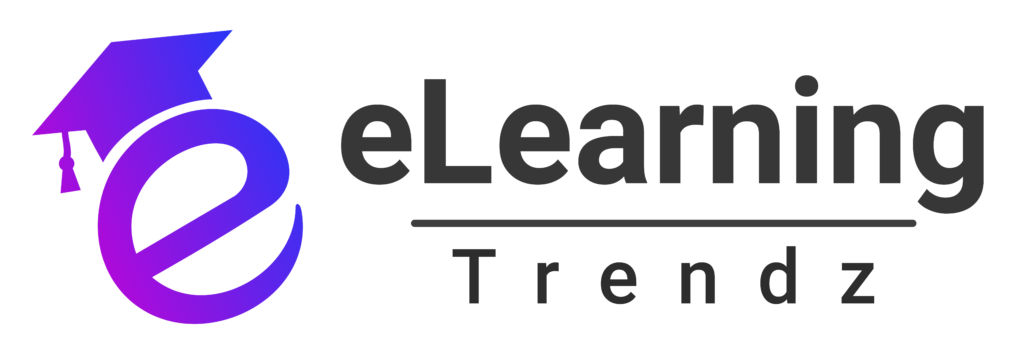Artificial intelligence (AI) has revolutionized the world of Learning and Development (L&D), offering vast improvements in how organizations approach employee training and development. From personalized learning paths to automated assessments and real-time feedback, AI in eLearning provides numerous benefits that help businesses scale and enhance learning experiences. But as AI-driven tools become more integrated into L&D strategies, ethical considerations have emerged as a significant challenge.
In this blog, we’ll explore the key ethical considerations L&D leaders must be aware of when integrating AI into eLearning systems and provide actionable insights on how to navigate these challenges effectively.
Why Ethical Considerations Matter in AI-Driven eLearning Systems
As AI continues to transform learning, it’s essential to highlight the importance of ethics in its development and use. Ethical considerations are not just about avoiding legal pitfalls or adhering to regulations—these principles are about ensuring that AI in eLearning is used responsibly to benefit all learners equally and without bias.
For L&D leaders, ignoring these ethical considerations can result in more than just compliance issues; it can lead to a breakdown in trust with learners and employees. Ethical AI ensures that AI tools align with organizational values, contribute to a fair learning environment, and create a positive learning experience for everyone.
Here are some reasons why ethical AI matters in eLearning systems:
- Data Privacy: Learners’ personal information is often collected and processed by AI systems. Ethical AI ensures that this data is handled responsibly.
- Fairness: AI-driven tools can unintentionally reinforce existing biases if not designed with fairness in mind.
- Transparency: AI systems must be transparent to help users understand how decisions are made.
- Accountability: There should be clear accountability for AI-driven decisions in case of errors or adverse impacts.
Key Ethical Considerations in AI-Driven eLearning Systems
1. Data Privacy and Consent
The first ethical concern in AI-driven eLearning systems is the privacy of the learners’ data. AI models rely heavily on user data, such as learning behaviors, quiz scores, and feedback, to provide personalized recommendations. However, when such data is not handled properly, it can lead to privacy violations and security breaches.
Best practices:
- Provide clear and transparent data usage policies.
- Offer opt-in options for learners to consent to data collection.
- Encrypt and anonymize sensitive data to prevent unauthorized access.
2. Algorithmic Bias and Fairness
One of the most significant ethical considerations when using AI in eLearning is the potential for algorithmic bias. AI algorithms learn from existing data, which may contain implicit biases related to gender, race, socioeconomic status, or other demographic factors. If not corrected, these biases can affect AI-driven decisions, such as recommending courses to certain groups or favoring certain learning styles over others.
To avoid these biases, L&D leaders should advocate for the use of diverse datasets to train AI systems. AI models should be regularly audited to ensure that they provide fair and equal opportunities for all learners.
Best practices:
- Use diverse and representative datasets to train AI models.
- Regularly audit AI systems to detect and mitigate bias.
- Ensure that AI tools do not reinforce harmful stereotypes or discrimination.
3. Transparency and Explainability
As AI becomes more embedded in eLearning systems, transparency becomes essential. When AI systems make decisions about course recommendations, learner progress, or assessment outcomes, learners should understand why the system made those decisions. Without transparency, AI tools risk becoming “black boxes,” where decisions are made without explanation, leading to frustration and mistrust among users.
Explainability in AI refers to the ability to explain how AI systems arrived at their conclusions in a way that users can easily understand. For example, if an AI recommends a specific course to a learner, it should be able to provide clear reasons for the recommendation.
Best practices:
- Provide learners and administrators with insight into how AI models make decisions.
- Use explainable AI models that allow users to understand and question the outputs.
- Offer clear documentation on the AI’s logic and decision-making process.
4. Learner Autonomy
AI-driven eLearning systems have the potential to be both empowering and disempowering. While AI can help learners access the right content at the right time, there is a risk of over-relying on AI to make decisions for learners, which could diminish their sense of autonomy.
Ethical considerations demand that learners retain control over their learning paths and are not simply subjected to the recommendations of an AI system. AI should complement, not replace, human decision-making, offering suggestions while leaving the final choice to the learner.
Best practices:
- Allow learners to have input in their learning journey, giving them control over their choices.
- Design AI tools to support learner decision-making rather than replace it entirely.
- Encourage learner engagement by offering meaningful choices and feedback.
5. Accountability and Oversight
When AI makes errors or produces undesirable outcomes, accountability becomes a critical concern. L&D leaders need to ensure that there is clear accountability for the actions and decisions made by AI systems in eLearning. This includes having oversight mechanisms in place to monitor the AI’s performance and intervene if necessary.
Best practices:
- Implement human-in-the-loop systems where decisions can be reviewed and adjusted by human supervisors.
- Regularly monitor AI performance to ensure that it aligns with organizational values and ethical guidelines.
- Set clear lines of responsibility for AI decisions within the organization.
Best Practices for L&D Leaders in Managing Ethical AI
- Establish AI Ethics Guidelines: Create clear policies that guide AI implementation, emphasizing transparency, fairness, and accountability.
- Conduct Regular Audits: Regularly audit AI systems to check for biases, fairness, and adherence to ethical standards.
- Training and Awareness: Train L&D teams and other stakeholders on the ethical implications of AI and how to manage them effectively.
- Collaborate with AI Experts:: Work with AI developers and data scientists to ensure that ethical concerns are integrated into the design of AI models from the beginning.
FAQs: Ethical Considerations in AI-Driven eLearning Systems
1: Why is data privacy a major ethical consideration in AI-powered eLearning?
Data privacy is a major concern because AI systems rely on sensitive learner data, such as personal details, learning behaviors, and performance metrics. If this data is mishandled, it can lead to breaches of privacy and undermine trust in the system.
2: How can L&D leaders ensure fairness in AI-driven eLearning systems?
L&D leaders can ensure fairness by using diverse datasets, conducting regular bias audits, and continuously evaluating AI outputs to ensure that no group is unfairly disadvantaged.
3: What does “explainable AI” mean, and why is it important?
Explainable AI refers to AI systems that can provide clear, understandable explanations of how they arrived at their decisions. This is important because it fosters trust, enables accountability, and allows users to make informed decisions based on AI recommendations.
4: How can L&D leaders address concerns about learner autonomy in AI-driven systems?
L&D leaders can ensure autonomy by designing AI tools that support, rather than dictate, learners’ choices. AI should provide recommendations, not enforce decisions, allowing learners to retain control over their learning journeys.
5: What steps can L&D leaders take to ensure accountability for AI-driven decisions?
Conclusion: The Future of AI in eLearning Depends on Ethical Integrity
As AI continues to reshape the future of eLearning, ethical considerations must remain a top priority. L&D leaders have the responsibility to ensure that AI systems are used ethically, transparently, and fairly, fostering an inclusive learning environment that benefits all employees. By embedding ethical frameworks into the development and deployment of AI-driven tools, organizations can build trust, empower learners, and create meaningful learning experiences that drive long-term success.














